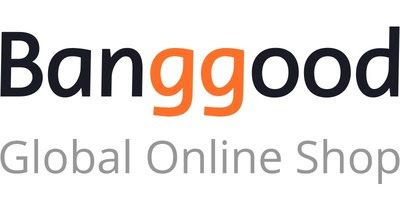GUANGZHOU, China, April 10, 2022 /PRNewswire/ — Banggood, a global leading online shop, is proud to launch Banggood Ramadan Festival 2022. A wide range of special categories has been arranged to maximize the choices for shoppers seeking to bring more joy to family and friends during the fasting month.

During the 43-day Ramadan shopping spree from March 20 to May 1, shoppers will not only enjoy limited-time discounts of up to 80% off on Banggood, but also be able to purchase many popular products for celebrating Ramadan such as car accessories, fashion apparel, consumer electronics, DIY tools, smart home appliances, and more, at affordable prices.
In March 2022, Banggood launched the brand’s new tagline – “Discover Fun”, highlighting its commitment to meeting shopper expectations while discovering the endless fun of life that the new product lineups will deliver in the process. During Ramadan, Banggood will give more shoppers the opportunity to “Discover Joy” by preparing an enviable product lineup for the holiday through a three- phases campaign and wide array of product categories.
Phase 1: Apr. 10th — Apr. 17th
During this period, the Ramadan style venue will offer 30% off on two items at the Warehouse in China. Shoppers can browse and buy hundreds of items specially selected for Ramadan using a variety of money-saving tips and discover other shopping secrets.
In addition, in the Ramadan style venue shoppers can find specially selected travel gear and accessories, including outdoor equipment, fashion items, and auto and motorcycle accessories.
Phase 2: Apr. 18th — Apr. 22nd
The discounts will even be better during the five-day triggering period. The Ramadan style venue will provide limited-time offers up to 90% off every day during the early morning “golden hours”. The Flash Deal channel will also offer items at the lowest prices for Ramadan. In addition, special channels such as Group Buy, Brand Street and Delivery Within A Week will have specially selected product lineups to meet shoppers’ diverse expectations.
Phase 3: Apr. 23rd — May 1st
The Ramadan style venue’s local warehouse will provide a gift list and timely delivery services on the Flash Deal channel. This can be a great one-stop solution for shoppers looking to buy gifts for their family and friends.
About Banggood
Banggood is a global leading online shop, offering millions of products that are well-selected. From consumer electronics, tools, home, toys, sports, to clothing, everything could be delivered to one’s front door with several clicks. For more information, please visit: https://www.banggood.com/
Logo – https://mma.prnewswire.com/